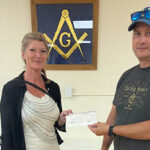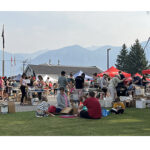Home »

A container for incredibly strong voices
Book Review
By Derryll White
Freeman, John, editor (2017). Freeman’s Home.
“No one has counted the number of deaths in exile. That’s how dark it looks in the nooks and crannies of the work ‘exile’.” — Herta Müller
John Freeman is a literary critic who has taken the bold move of creating his own themed literary anthologies. ‘Freeman’s Home’ is the third in the series.
 This anthology is a container for incredibly strong voices. There is none of the solipsistic muted voices of the beautiful daffodil and charming cottage. ‘Home” here is the memory of hurt, the making of a place for living in a world of pain. Herta Müller’s voicing of “exile” in Germany brings back the carnage of WW II to the post-war artistic German community. Rabih Alameddine takes us past Trump’s insensitivities to the Muslim world and opens the hurt of Syrian refugees. These are stories by remarkable writers that anyone with humanity in mind and heart would do well to read.
This anthology is a container for incredibly strong voices. There is none of the solipsistic muted voices of the beautiful daffodil and charming cottage. ‘Home” here is the memory of hurt, the making of a place for living in a world of pain. Herta Müller’s voicing of “exile” in Germany brings back the carnage of WW II to the post-war artistic German community. Rabih Alameddine takes us past Trump’s insensitivities to the Muslim world and opens the hurt of Syrian refugees. These are stories by remarkable writers that anyone with humanity in mind and heart would do well to read.
Freeman’s selections in ‘Home’ waken the Canadian reader to a world fact – there are millions of refugees who think of home as a place, a piece of ground, other than where they find themselves actually living. And this concept of home appears irreconcilable with the geo-political facts of the world.
‘Freeman’s Home’ is definitely reading outside the box, but the views expressed and the subjective analysis pleaded for are worthy of any caring reader’s consideration. Living in Canada and East Kootenay is not a “pass” and we do not collect $200. Unlike Monopoly we cannot just close the board and put the game back in the cupboard. The world keeps knocking.
“Nothing outside you can give you any place…. You needn’t to look at the sky because it’s not going to open up and show no place behind it. You needn’t to search for any hole in the ground to look through into somewhere else. You can’t go neither forwards nor backwards into your daddy’s time nor your children’s if you have them. In yourself right now is all the place you’ve got.” — Flannery O’Connor
Excerpts from the book:
HOME – I have come to believe that home is the antidote to myths such as this one, myths that hover outside the reach of so much human life, creating a low pressure system of unhappiness in between the ground and sky. Perhaps we truly need to become in order to be, but however speedily or sluggishly that evolution proceeds, we need a narrative space in which we tell and live the story of our lives – and that space is called a home. In this sense, a home is not a fixed place, or even necessarily a stable one. The last decade of migration ought to tell us that. Rather, home is a space we have exerted ourselves against to make a corner of it ours. Home is a place we claim or allow ourselves to be claimed by.
READING – My bedroom is full of books and as I pass my eye over them on a given morning one or another of them is somehow just at the right distance from me, just perfect to open and allow that strange unmaking and remaking of the self, that weird interweaving of brains when things go permeable.
MEMORY – When we leave home, we leave behind our past and encounter a version of home when we return, built of legends true and false…. I know leaving home can be as complicated as living there and as inescapable as your own DNA.
GRACE – “You might have strayed too far from home,” she once wrote me, “a little or a lot from the path your uncle and parents taught you. Jesus does not do in-betweens or lukewarm. You’re either inside his kingdom or out in the cold.”
PALESTINIAN DESPAIR – “It appears that going to the UN, the international treaties, BDS, those are the only things that affect the Israelis, who are obsessed with their standing in every other place in the world but don’t care what their neighbors think of them. If we don’t kick up a fuss around the world and there’s no terrorism – we might as well be air for the Israelis.”
FAMILY – I recall hearing stories my father told about practicing medicine in rural South Africa in the days leading up to the worst of apartheid, and I have wondered at the curious ways in which you can presume you’re actually starting out on your own course as someone’s son, only to understand years later, that you grew up in a family, and that buried in all those years-ago conversations were, often, the very models that made you believe so fiercely in the way you chose to live your life.
MEMORY – Contrary to the common misconception in our foolishly digital society, technology is perishable, while even weak, incorrect or incomplete memories persist, because they live in, and are passed on among, bodies. And the bodies can sing too.
 – Derryll White once wrote books but now chooses to read and write about them. When not reading he writes history for the web at www.basininstitute.org.
– Derryll White once wrote books but now chooses to read and write about them. When not reading he writes history for the web at www.basininstitute.org.







